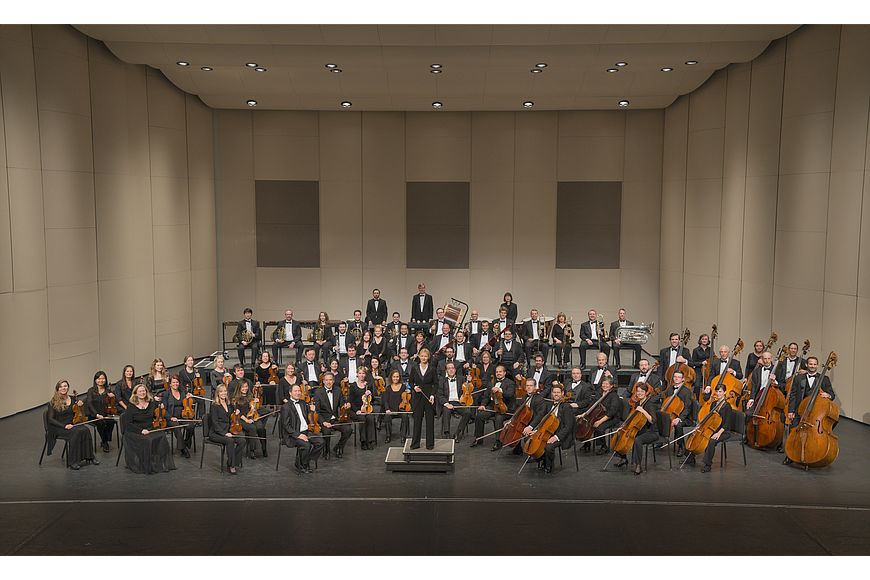- July 26, 2024
-
-
Loading

Loading

As the Sarasota Orchestra has spent months searching for a location to build a new concert hall, the organization says it has found some potentially viable sites — none of which are within city limits.
Sarasota Orchestra President and CEO Joseph McKenna sent a letter to city officials Monday updating them on the organization’s music center planning process. Although the city has repeatedly expressed a desire to retain the orchestra after rejecting a proposal to build a venue at Payne Park, McKenna said the orchestra has not identified any other suitable options within the city.
“It has become apparent to us that none of the available sites in the city meet our four critical success factors due to prohibitively long timelines, inadequate acreage, lack of parking or other factors,” McKenna wrote in the letter. “The current site options that meet our criteria lie within the county.”
The orchestra announced its intent to relocate from the bayfront Beatrice Friedman Symphony Center in 2018. In 2019, the orchestra identified Payne Park as its desired site for a new venue, but the City Commission voted 4-1 to deny the request to use parkland to build a concert hall.
At the time, the city said it wanted to continue to work with the orchestra to find an alternative site. The city has since repeatedly reiterated that commitment, even after the orchestra expanded its site search process beyond city limits. That includes action at Monday’s meeting, where the commission unanimously approved a resolution expressing a desire to keep the orchestra within city limits.
At the suggestion of Commissioner Liz Alpert, the commission also agreed to reach out to the orchestra about the possibility of holding a workshop with the orchestra to discuss siting options. Alpert said she believed the city should aggressively explore options for keeping the orchestra within city limits.
“I think it’s really incumbent on us as a commission to really take seriously whether we want to be the commission that’s responsible for losing the orchestra in the city,” Alpert said.
In his letter to the city, McKenna said there are four factors guiding the orchestra’s search process: “timeliness, artistic and educational integrity, philanthropic considerations, and business and economic vitality.”
The orchestra has discussed its future with the city during at least three public meetings since summer 2018. At those meetings, some commissioners have asked for additional details about the sites the orchestra has reviewed and the specific criteria used to evaluate their suitability.
In an interview, McKenna said he believed the orchestra has been forthright in its communications with the city during the planning effort. In addition to the information shared at public meetings, McKenna said the orchestra has continued to speak with city staff as it searches for a site.
“We’ve been very comprehensive with sharing how our process has worked,” McKenna said.
But Mayor Jen Ahearn-Koch said she hoped to see a more substantive conversation between orchestra leaders and city officials to facilitate the search for a workable site. Ahearn-Koch said she had “almost no communication” with the orchestra following the May vote to reject the Payne Park proposal.
Although she acknowledged the orchestra is a private institution free to pursue a new facility in whatever manner it sees fit, she said she still wasn’t clear which sites the organization has already ruled out or what specific factors were guiding the search process.
“More than these sort of overly broad criteria — what do you need?” Ahearn-Koch said. “What are you looking for?”
Through a spokesman, the city declined to answer a series of questions about the information the orchestra shared with staff regarding the search process.
Despite the orchestra stating it had failed to find a site in the city, Ahearn-Koch was optimistic about the potential to work collaboratively in pursuit of a suitable location for a concert hall. In the letter, McKenna said the orchestra appreciated “all expressions of support, will remain engaged with Sarasota city staff and will keep an open mind to new options that might arise.”
“They are excited and enthusiastic,” Ahearn-Koch said. “We are as well.”
Although they were committed to trying to find a solution that works for the orchestra, both Ahearn-Koch and Commissioner Willie Shaw said they would not reconsider the concept of using Payne Park.
Shaw invited the orchestra to consider using a county-owned property on U.S. 41 near Water Tower Park, which city staff previously identified as a potential option in a memo last year.
McKenna said the orchestra hopes to provide a more detailed update on its venue planning process during the first quarter 2020.
The entirety of the City Commission has expressed a desire to seriously engage the orchestra in an effort to retain the arts institution. To Alpert, the city should be operating with a sense of urgency as the orchestra advances its search process.
“I think losing something like that on our watch would be a stain on this commission,” Alpert said. “I would hope we would consider doing everything we can to make sure they stay here.”
Ahearn-Koch said there’s no question the city wants to retain the orchestra. But for an effective collaboration, she thinks there has to be a serious effort to engage with the city on the orchestra’s end, as well.
“We would say to them: ‘We’ll work with you, but we can’t just go parcel by parcel, “Is this one good? Is this one good? Is this one good?”’” Ahearn-Koch said. “There has to be a conversation that has to happen.”